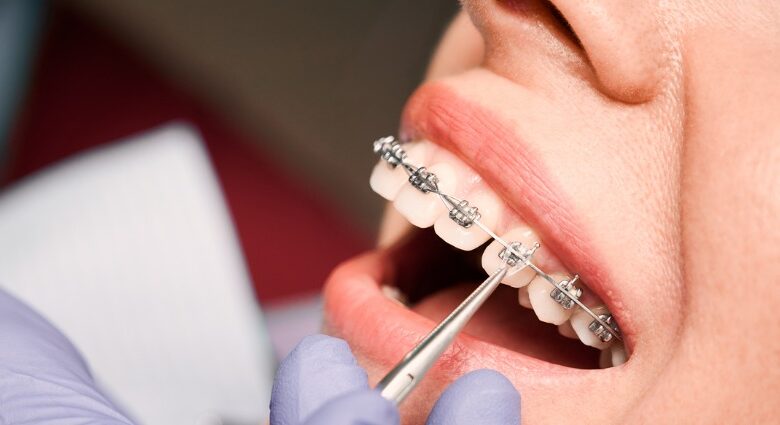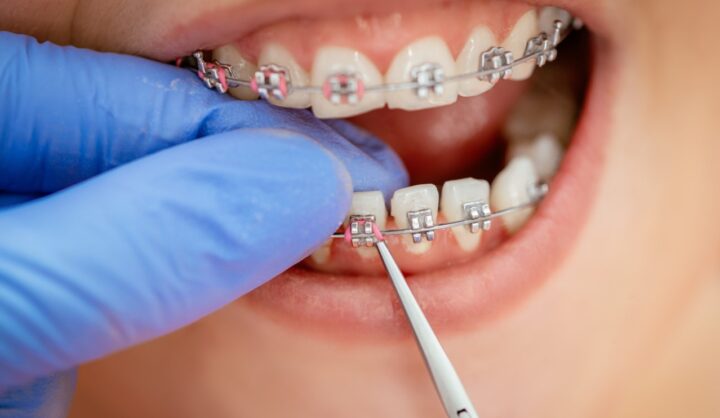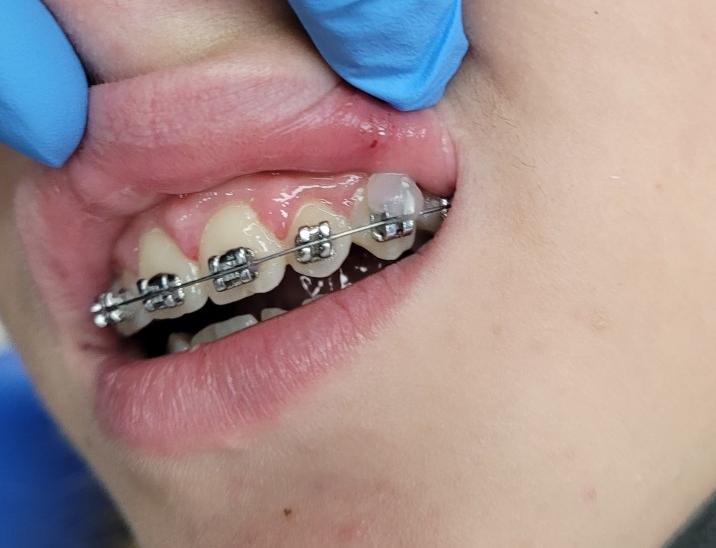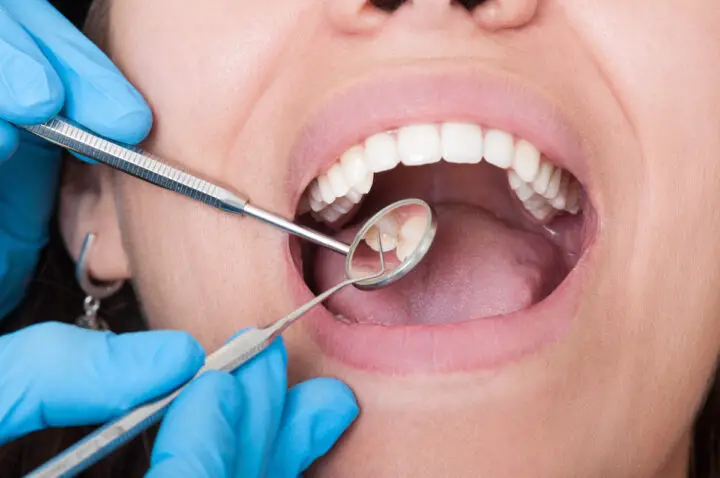How Long Will My Teeth Hurt After Braces Are Put On?

You’ve finally scheduled an appointment to receive braces so you can start the process of getting the straight teeth you’ve always wanted! Though you could be scared to some extent. You might have heard that getting braces is complex, and you don’t get to continue to eat the food you love. It’s possible that you have a lot of questions. One of the most common questions is how long the pain will stay after putting on braces.
Why do braces hurt?

Understanding how braces function can help you understand why they can initially hurt. Simply put, your orthodontist attaches one bracket to each tooth. These brackets join and sustain the arch wires, the device that moves and straightens your teeth. The soft tissue in your mouth and lips may itch from these brackets and wires until they become used to them. Your mouth toughens with time, much like your hands’ hardened skin, and the pain from your braces will eventually subside or disappear.
Additionally, braces apply consistent, moderate pressure to your teeth; they first discomfort. Your braces may be pushing, tugging, or rotating your teeth to align them, depending on the circumstances of your malocclusion. Your body initially perceives the movement of your teeth as pain since it occurs as a result of a controlled and self-limiting inflammatory process.
Visit drmcsurdy.com to learn about Collegeville orthodontists to get your braces done.
How long do braces hurt?
A person may not immediately feel pain or discomfort when the braces are put on. However, the slight pressure the braces provide to the teeth will begin to work after a few hours.
Pain and discomfort from the pressure of the braces gradually realigning the teeth can endure for a day or two to around a week.
People may stop noticing their braces when their body becomes used to them. However, the orthodontist must tighten the braces from time to time for them to function.
An individual may feel discomfort similar to when they originally acquired their braces while tightening takes place. It might be less uncomfortable in some circumstances. Many people only experience pain in their teeth and gums after tightening. By this point, the cheeks and tongue have typically gotten used to the braces, making it less likely that they would sustain further abrasions.
Tips To Manage Braces Pain
1. Orthodontic Wax

Orthodontic wax will probably be sent home with you. The interior of your lips, cheeks, and gums are shielded from the braces brackets by this particular wax. The wax forms a barrier that prevents your mouth from being irritated by the brackets’ sharp ends.
Use orthodontic wax according to the directions provided. In essence, you shape the wax to cover the irritated bracket. You don’t need to be concerned about unintentionally ingesting any because it is nontoxic wax, but keep in mind to remove it before brushing your teeth. After you brush your teeth and after eating, reapply the wax.
2. Proper Dental Care

The pain and discomfort you experience may also depend on how well you care for your braces and teeth. The most crucial thing to keep in mind when wearing braces is that keeping your teeth and braces spotless is necessary to prevent gum disease and tooth decay. Food will stick to the brackets and wires, so you must also correctly clean them. To ensure that you remove all food debris left over from eating, use mouthwash, floss, and brush your teeth as necessary.
3. Use Ice
Additionally, anything chilly can be used effectively. Consider what you would do if you were to twist your ankle or have any other injury. You frequently rest it and apply an ice pack to the injured area, right? The pain is numbed, and any inflammation is reduced by the cold.
Apply the same strategy to your mouth, and you’ll get the same result! Grab some ice and keep it in your mouth against the aching location, assuming your teeth aren’t too sensitive. You might also use this as an excuse to indulge in some ice cream because the coolness should aid in reducing discomfort.
4. An over-the-counter painkiller
Just before your visit to have the braces tightened, take painkillers. The medication will begin to operate far before the onset of your pain. One dose of a pain reliever is sufficient to lessen the minor discomfort and bracing pain. However, before taking any medication, talk to your orthodontist.
5. Avoid Hard Foods
Avoid eating items like raw veggies and chips that are rough and crunchy since they will aggravate your tongue even more. Additionally, overextending your jaw to eat chips or crusty bread might worsen the pain from your braces and perhaps last longer. Instead, eat soft foods that won’t bother you, such as mashed potatoes, pudding, yogurt, and soup.
6. Oral sedatives

Benzocaine is an ingredient in most oral anesthetics, also known as topical anesthetics. In addition to numbing the region where it is applied, benzocaine can ease discomfort and pain from orthodontic treatment.
To ensure proper use of your topical anesthetic, it’s critical to adhere to all label directions. Either a clean finger or a cotton swab can be used to apply the product. The majority of products must be administered directly to the sore spot and should be refreshed every few hours.
7. Warm Salt Water
Rinses made with warm salt water are beneficial for many dental issues. They assist with discomfort, impacted wisdom tooth problems, oral infections, and abscesses. A warm salt water rinse can assist in reducing swelling and inflammation if your braces are hurting you or making you uncomfortable.
Use one cup of warm water and half a teaspoon of normal table salt to create your saltwater rinse at home. Use it in a manner similar to how mouthwash is used by stirring the salt into the water until it dissolves. You can utilize a warm salt water flush frequently depending on the situation since it is protected for orthodontic patients.
Conclusion
Brace pain can be excruciating, but knowing it will pass is comforting. Your mouth will become used to the braces, and the pain will eventually disappear. Although the techniques mentioned earlier can help you lessen mouth pain, time is the true healer. Be patient, then.

